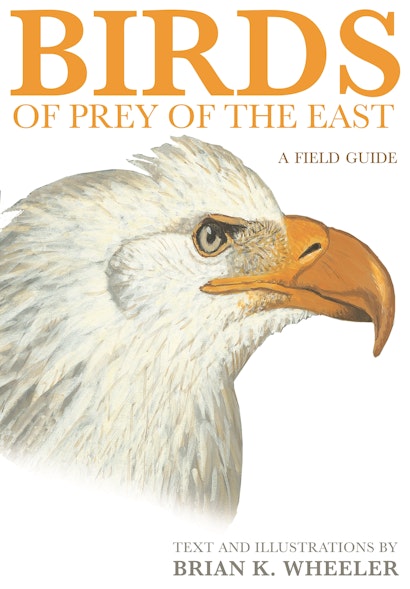Birds of Prey of the East and its companion volume, Birds of Prey of the West, are the most comprehensive and authoritative field guides to North American birds of prey ever published. Written and lavishly illustrated with stunning, lifelike paintings by leading field-guide illustrator, photographer, and author Brian Wheeler, the guides depict an enormous range of variations of age, sex, color, and plumage, and feature a significant amount of plumage data that has never been published before. The painted figures illustrate plumage and species comparisons in a classic field-guide layout. Each species is shown in the same posture and from the same viewpoint, which further assists comparisons. Facing-page text includes quick-reference identification points and brief natural history accounts that incorporate the latest information. The range maps are exceptionally accurate and much larger than those in other guides. They plot the most up-to-date distribution information for each species and include the location of cities for more accurate reference. Finally, the guides feature color habitat photographs next to the maps. The result sets a new standard for guides to North America’s birds of prey.
- Lavishly illustrated with stunning, lifelike paintings
- Written and illustrated by a leading authority on North American birds of prey
- Depicts more plumages than any other guide
- Concise facing-page text includes quick-reference identification points
- Classic field-guide layout makes comparing species easy
- Large, accurate range maps include up-to-date distribution information
- Unique color habitat photographs next to the maps
Awards and Recognition
- One of American Birding Podcast's Best Bird Books of 2018 (Donna Schulman & Nate Swick)
Brian K. Wheeler has been studying, painting, and photographing birds of prey throughout the United States and Canada for more than fifty years. He is the illustrator of Hawks of North America (Peterson Field Guides), the coauthor and photographer of A Photographic Guide to North American Raptors (Princeton), and the author and photographer of Raptors of Eastern North America and Raptors of Western North America (Princeton). His photographs have appeared in many other books and in many bird magazines.
"[T]he art of the classic field guide is not lost but alive and well in these two volumes from Brian K. Wheeler. . . . These are mighty books for raptor enthusiasts who take their birds of prey seriously. They represent a new standard for bird field guides. They go beyond the definition of a guide and reach into the realms of dissertation, systematic study and detailed exploration. . . . Both are ‘must-haves’ for the serious raptor aficionado."—Phil Slade, Another Bird Blog
"These guides are a must-have for all raptorphiles!"—Ian Paulsen, Birdbooker Report
"Thirteen years in the making, this is an opus of the highest order, with a mass of information and detail, unrivalled by any other work presently available."—David Gascoigne, Travels With Birds
"Brian Wheeler's new field guides are must-haves for every bird-of-prey aficionado, hawk watcher, raptor biologist, or field naturalist. The wonderfully detailed plates and text synthesize the latest knowledge on plumages for each species, including information on aging, and mark a new frontier in raptor identification books."—Laurie J. Goodrich, Hawk Mountain Reservation, Pennsylvania
"North American raptors, even the common ones, can be incredibly variable in appearance and a challenge to identify for many birders. In his new guides, Brian Wheeler celebrates this diversity and skillfully guides observers through steps to distinguish what they are seeing. Bravo for his approach and industry, which will assist us all in appreciating the raptors of our world!"—Gordon Court, wildlife biologist
"The spectacular color illustrations and detailed text should make Birds of Prey of the East and Birds of Prey of the West welcome additions to the library of any serious aficionado of diurnal birds of prey—or to anyone who has ever looked skyward and marveled at the grandeur of a soaring raptor."—Wayne R. Petersen, Mass Audubon


